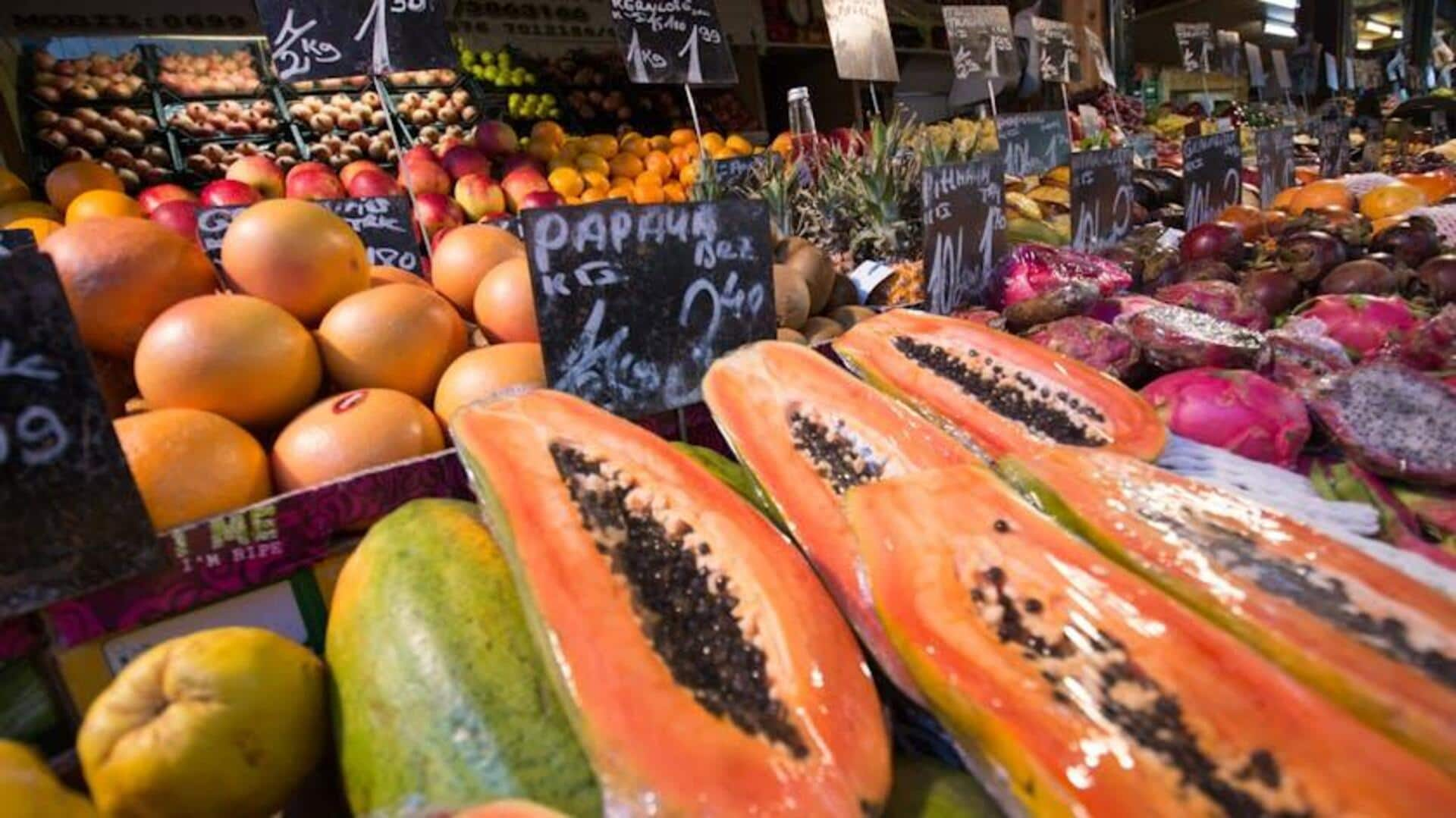
Papaya v/s passion fruit: Comparing their nutrition
What's the story
Papaya and passion fruit are two tropical fruits known for their unique flavors and nutritional benefits. While both offer a range of vitamins and minerals, they differ in their specific nutrient profiles. Understanding these differences can help individuals make informed dietary choices based on their nutritional needs. This article delves into the nutritional aspects of papaya and passion fruit, highlighting key insights that distinguish these fruits from each other.
Vitamins
Vitamin content analysis
Papaya is loaded with vitamin C, giving you more than 100% of the daily recommended intake per serving. It is also a good source of vitamin A, which is good for vision. Passion fruit, on the other hand, gives you a good dose of vitamin C but is especially rich in vitamin A and B vitamins such as niacin and riboflavin. These vitamins are essential for energy production and for keeping your skin healthy.
Fiber
Fiber content differences
Speaking of fiber content, passion fruit leads with 10 grams per cup (papaya has only three grams per cup). This makes passion fruit a great option for those who want to increase their intake of dietary fiber for improved digestion and heart health. The higher fiber content in passion fruit can help ensure regular bowel movements.
Calories
Caloric value comparison
In terms of caloric value, papaya is lower with about 60 calories per cup, making it a suitable option for calorie-conscious individuals. Passion fruit has about 230 calories per cup due to its denser composition but offers more energy-dense nutrients, along with natural sugars that can be beneficial for active individuals needing quick energy boosts.
Minerals
Mineral composition insights
Both fruits pack essential minerals like potassium and magnesium. However, papaya has more potassium, which promotes heart health by regulating blood pressure levels. Passion fruit offers more iron than papaya, which is helpful for people looking to increase their iron intake, particularly vegetarians or those with anemia issues.